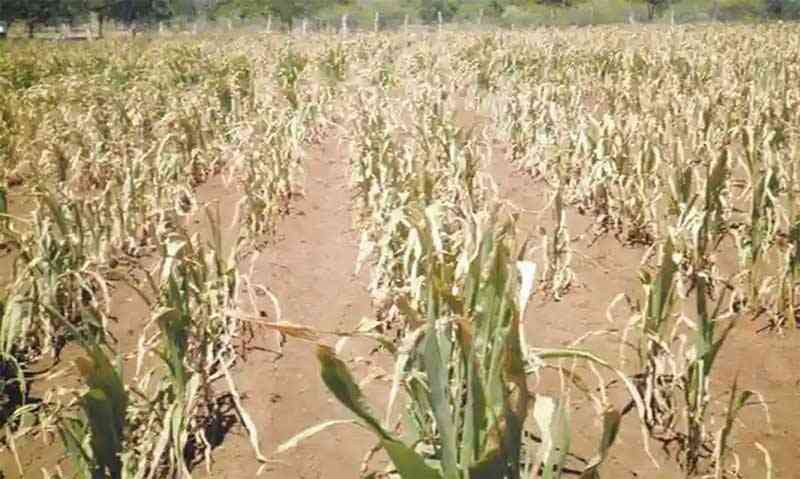
ARE you receiving a retirement benefit from NSSA? That is the question a new billboard on Borrowdale Road asks those travelling towards Harare’s city centre from Borrowdale, Helensvale, Hatcliffe, Domboshawa and elsewhere.
The billboard is the first of a number of billboards NSSA plans to erect around the country to encourage those who are eligible for benefits from NSSA to claim them. Apart from retirement benefits, the billboard highlights Invalidity Benefit, Survivor’s Benefit, Employment Injury Benefit, Funeral Grant and Occupational Safety and Health Services as among the benefits provided by NSSA.
To qualify for retirement and invalidity benefit one must have been contributing to the Pension and Other Benefits Scheme administered by NSSA. To qualify for Survivor’s Benefit one must be a spouse, child or other dependant of a contributor to the scheme.
To qualify for Employment Injury Benefit one must have been seriously injured at work and working in the formal sector, apart from government or domestic work. There are two social security schemes administered by NSSA. There is the Pensions and Other Benefits Scheme and the Accident Prevention and Worker’s Compensation Scheme.
Everyone in formal employment, other than domestic work, is required by law to contribute to the Pensions and Other Benefits Scheme. The monthly contribution is currently seven percent of the employee’s basic earnings for those earning up to $700 and seven percent of $700 for those earning above $700, with the contribution split equally between the employee and his/her employer. In other words, the employee contributes 3,5% and the employer contributes 3,5%.
Every employer, apart from the government, employers of domestic workers and informal sector employers, is required by law to pay a Worker’s Compensation Insurance Fund premium, which is a percentage of each employee’s basic earnings, with the percentage varying according to the risk profile of the particular business sector.
That means that all those in formal employment, other than domestic work, or their dependants should be entitled at some stage to a benefit under the Pensions and Other Benefits Scheme, with the amount of benefit dependent on the contribution period and insurable income at the time of eligibility. The only exception is if they have contributed to the scheme for less than 12 months, in which case there is no benefit payable, but their contributions are refundable with interest.
Any formal sector employee, other than a government employee or domestic worker, who is seriously injured at work is also eligible for employment injury benefits from the Worker’s Compensation Insurance Fund. Retirement benefit should be claimed on retirement provided one has reached the age of 60 or, in the case of agricultural workers and those employed in some other arduous jobs, at the early retirement age of 55.
- Chamisa under fire over US$120K donation
- Mavhunga puts DeMbare into Chibuku quarterfinals
- Pension funds bet on Cabora Bassa oilfields
- Councils defy govt fire tender directive
Keep Reading
To qualify for early retirement benefit, one must have been working for at least seven of the preceding 10 years in a job categorised as arduous, such as farming, heavy truck driving, quarrying and some mining and forestry jobs.
The benefit should be claimed at age 65 by those still in employment at that age, who should stop contributing to the pension scheme and can receive their benefit even though they are still working. Contributions paid to the scheme after age 65 are not taken into account in considering the contribution period. They are refundable.
The retirement benefit is a retirement pension for those who have contributed to the pension scheme for at least 120 months. Those who have contributed for less than 120 months, but for at least 12 months receive a lump sum grant.
Invalidity benefit is paid to contributors below the age of 60 who have contributed to the pension scheme for at least six months and become permanently incapable of work due to physical or mental ill health. The incapacity must be medically certifiable and believed to be permanent. The benefit is an invalidity pension if the person has contributed to the pension scheme for at least 12 months. It is a grant if the contribution period is less than 12 months.
Survivor’s benefit is payable to the spouse and children of a pensioner or contributor who has died. Whether it is a pension or a grant depends on the contribution period. It is a pension where the contribution period was 10 years or more. If there is no spouse or children under the age of 18, or 25 if still in full time education, then the benefit can be claimed by another dependent relative, such as a parent, provided that person is registered with NSSA as a dependant.
A funeral grant is also payable where a contributor or pensioner has died. Pensions should be claimed within 12 months of becoming eligible. Pension applications lodged after this period will still be considered but, if approved, only be payable from the date the claim is lodged.
Grants must be claimed within five years. Applications lodged later than this are normally rejected. However, because many people did not realise they were eligible for a grant, late grant applications are being accepted up until the end of 2014.
This includes resubmission of grant applications previously rejected because they were submitted late. Benefits under the Worker’s Compensation Insurance Fund include the payment of medical and rehabilitation costs and payments to compensate the injured employee for loss of income. Normal monthly wages are guaranteed for 30 days and a percentage is guaranteed thereafter.
Where the injury results in permanent disability, a pension is paid if the disability is more than 30 percent. Children’s allowances are included for children up to the age of 19. If the employee dies as a result of the work accident or a work-related disease, the surviving spouse receives two-thirds of the pension the deceased person would have been eligible for.
The children still receive their allowances. A funeral grant is also payable.
So, if you are entitled to a benefit from NSSA under either the Worker’s Compensation Insurance Fund or the Pension and Other Benefits Scheme, make sure you apply for it at your nearest NSSA office.
Talking Social Security is published weekly by the National Social Security Authority as a public service. Readers can email issues they would like dealt with in this column to [email protected] or text them to 0772 307913. Those with individual queries should contact their local NSSA office or telephone NSSA on (04) 706523/5, 706545/9, or 799030/1.











